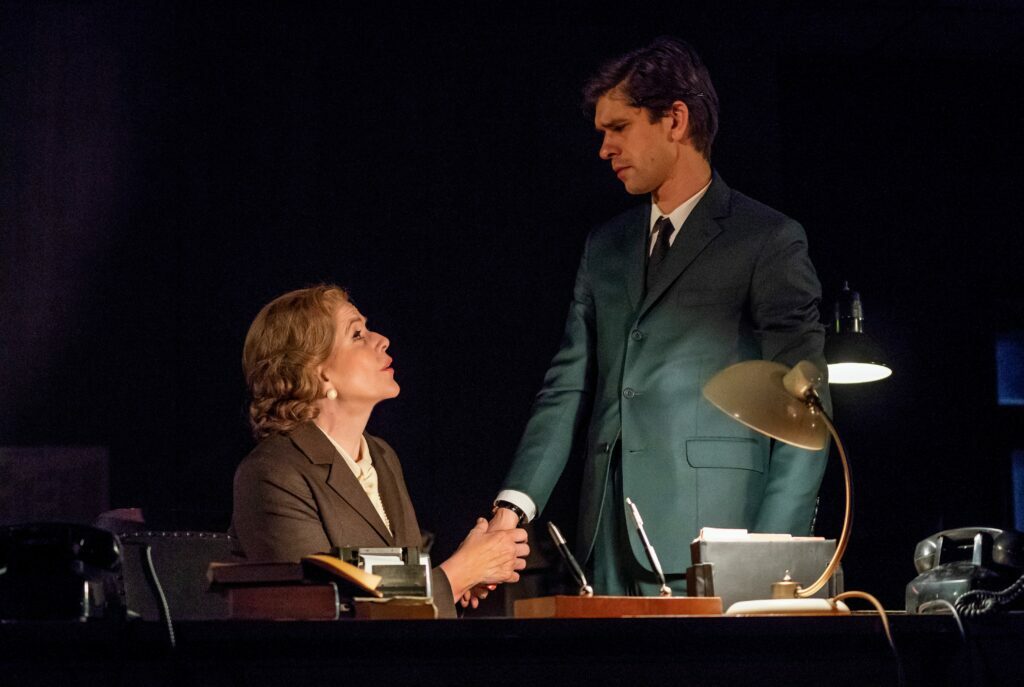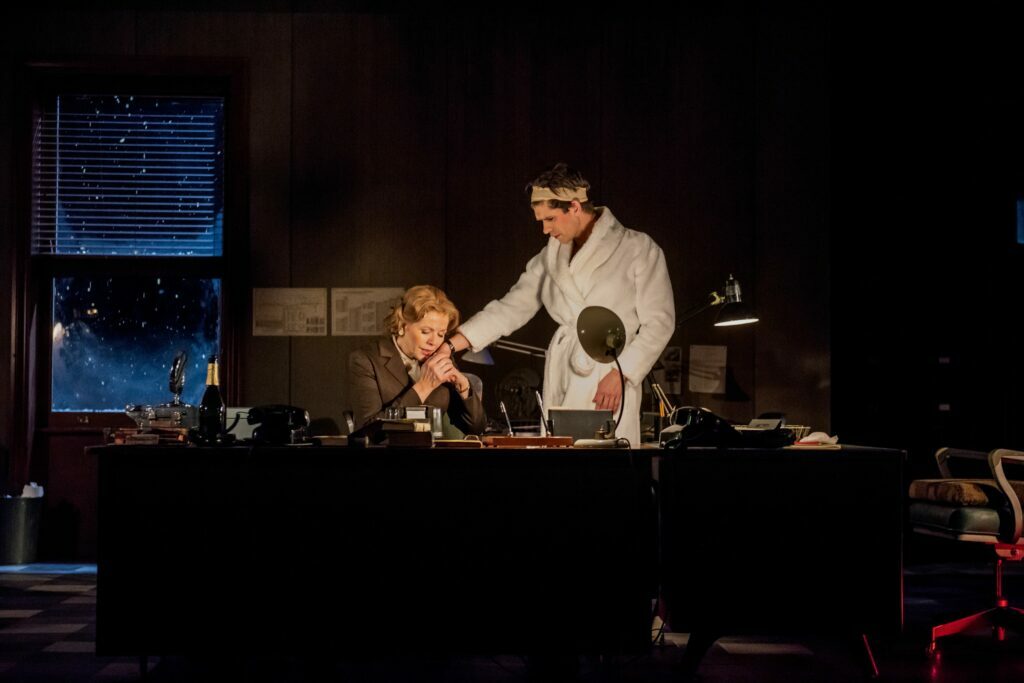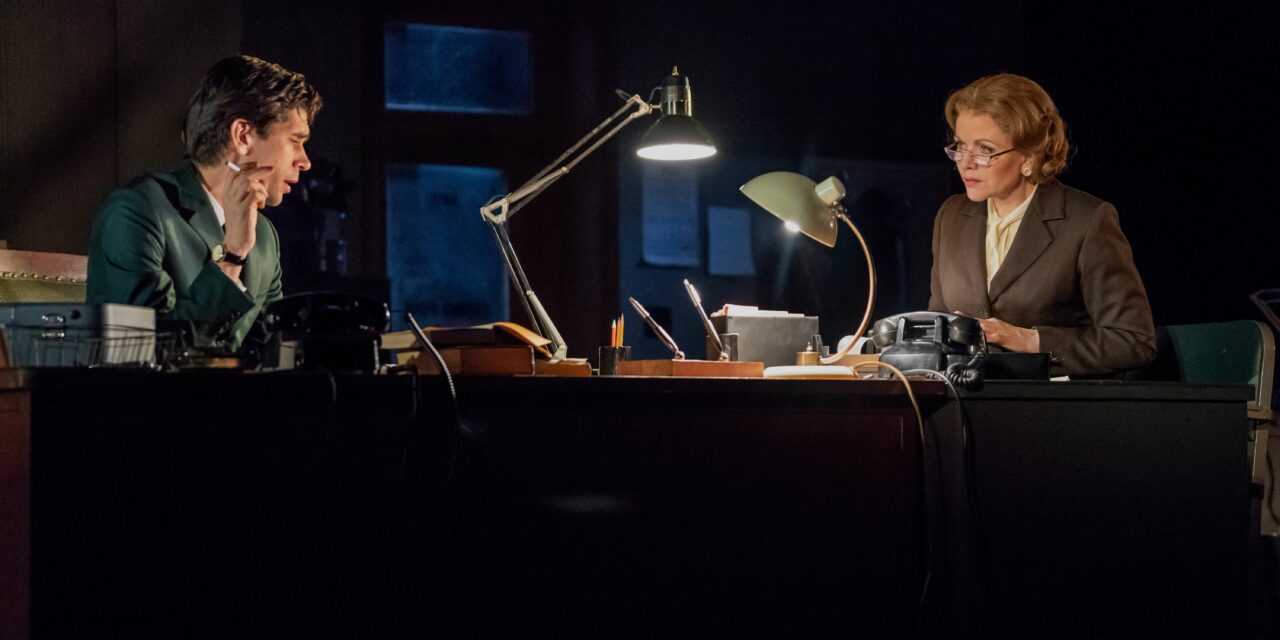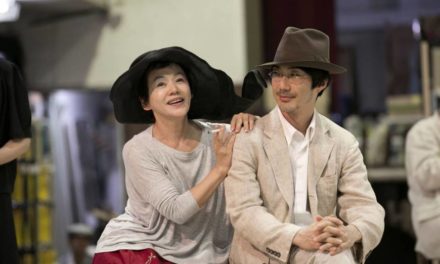If gender, as we’re often told, is a construct, then some women are skyscrapers. These are the women who define, for a generation or an entire culture, what that word means. Beautiful, seductive, strong, wily and, surprisingly, none too domestic. Norma Jeane Baker Of Troy, written by Anne Carson and directed by Katie Mitchell, takes this iconography head-on, by mashing up the stories, the legends, of Marilyn Monroe and Helen of Troy. Carson takes the lives of these two women who, centuries apart, came to represent the pinnacle of temptation, and recasts them as stories of captivity, desperation, and abjection.

The powerhouse cast is composed of two monumentally talented performers: stage and screen star Ben Whishaw and the soprano Renée Fleming, a legendary woman herself. In their on-stage relationship as screenwriter and typist, respectively, the two are seemingly restrained. But Whishaw cycles through a number of personae, and personae impersonating other personae, as Fleming translates his words into both written text and song. Neither character has a name, but the setting is clear: it’s New Year’s Eve, 1963. JFK’s recent death is mentioned, by a disembodied voice on the radio; Marilyn’s, a year and a half earlier, never comes up. I was caught off-guard by an anachronistic reference to reality tv, but the comment never went anywhere.
In an interview about this show, Carson, who is a poet, translator, and classicist, says, “Genre is basically a matter of occasion.” And this work is basically impossible to describe in generic terms. The text alternates between spoken and sung parts, and while some snippets of Fleming’s vocal performance are recognizable musical genres, the score, by frequent Katie Mitchell collaborator Paul Clark, is largely experimental. Fleming’s unmistakably potent voice imparts equal emotion to phrases that are disarming in song, and ones that are at the crux of the show, like the refrain “It’s a disaster to be a girl.” The book departs from Euripides’ Helen, and includes sections called “History of War” that unearth the intricacies of ancient Greek. Carson, not to be outdone by Fleming, is flexing.

But speaking of constructs, the production of Norma Jeane Baker Of Troy cannot be divorced from its stage: The Shed, the new performing arts venue on the site of Hudson Yards. Hudson Yards is a brand-new gazillion dollar development on Manhattan’s waterfront, and for all the resources that went into it and hullabaloo that greeted it, is basically a big mall. Some of the shops and restaurants are lux, yes, but the finished product feels more in line with what you find in Bloomington, MN than Dubai, UAE. The Shed is a non-profit, multi-media performance space with a stated commitment to accessibility and radical politics, yet the crowd I saw on opening weekend was uniformly well-heeled.
Norma Jeane Baker Of Troy is The Shed’s first commissioned work and all the parts are in place to make for a stunning theatrical experience. Like the entire Hudson Yards project, tremendous resources and top-notch talents have been poured into this project, and yet it somehow comes out as less than the sum of its parts. The Shed, maybe the one feature which could potentially redeem Hudson Yards, has room to grow. As a construct, it’s still a work-in-progress.
This post was written by the author in their personal capacity.The opinions expressed in this article are the author’s own and do not reflect the view of The Theatre Times, their staff or collaborators.
This post was written by Abigail Weil.
The views expressed here belong to the author and do not necessarily reflect our views and opinions.


















